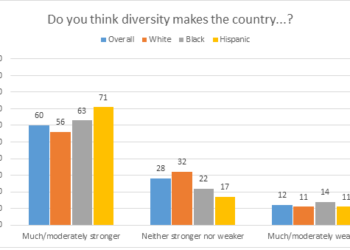According to a 2021 study by the School of Law at the Williams Institute, about million LGBTQ adults in the United States identified as non-binary, yet many felt excluded due to the traditional gender markers on their documents — which raises the question, is it time for birth certificates to evolve?
Over the past several years, there has been a growing shift towards inclusivity in official identification documents.
Birth certificates in particular, have been undergoing significant changes, with many countries around the world introducing options that better reflect the diversity of gender and identity.
In this article, we’ll explore the rise of non-binary birth certificates in the US and abroad, the impacts it has on non-binary people, and what’s next.
What are Non-Binary Birth Certificates?
If you pull out your birth certificate and take a look, you’ll likely see a section labeled “sex” or “gender,” with the options limited to “M” or “F.”
However, advocates for non-binary birth certificates argue for the inclusion of a third option — commonly labeled as “X” or “non-binary” (often abbreviated as NB) — to reflect the diversity of human identities better.
The push for non-binary birth certificates began gaining momentum in the early 2000s, alongside the rise of the LGBT+ movement. However, it wasn’t until 2015 that several US states began to take action.
In June 2017, Oregon became the first state in the U.S. to allow a non-binary “X” gender marker on state IDs and driver’s licenses.
A few months later, California became the first state to allow gender-neutral birth certificates. As noted in The New York Times, “Gov. Jerry Brown signed a bill into law Monday that simplifies the process, and provides nonbinary and intersex people with the ability to request a new birth certificate with a third, nonbinary category. It is the first state to offer such an option.”
The latest breakthrough was on April 11, 2022, when the “X” gender marker became available on passports for all U.S. citizens.
Psychological & Real-Life Impact for Non-Binary People
Besides bureaucratic formalities, non-binary birth certificates (as well as inclusive identification) also have significance for the psychological, emotional, and everyday lives of non-binary individuals.
Legal acknowledgment of one’s gender can significantly improve mental health, particularly for non-binary individuals. Studies have shown that transgender and non-binary adolescents reported elevated symptoms of social anxiety (78%), general anxiety (75%), and depression (59%), among others.
According to the study’s authors, these symptoms stem from the perceived lack of social support that TNB [transgender and non-binary] teens face in their everyday lives.
Other contributing factors were “the stigma and perception of social ostracism has been made worse by recent anti-TNB legislation” as well as “recent developments which restrict access to gender-affirming care.”
The introduction of non-binary options on birth certificates, however, has the potential to alleviate some of these stressors.
Having legal documents that match a person’s identity helps lower the chances of being misgendered in social or work settings and gives them a clear sense of validation.
Likewise, non-binary birth certificates and other inclusive identification also have other benefits in daily life, such as barrier-free access to services (such as healthcare, housing, and legal services), the freedom to travel without fear of discrimination, and simply allowing one to live their life without typical gender norms.
Speaking of which, there has also been a rising trend of parents who choose to amend their child’s birth certificate with an ‘X’ instead of a traditional gender marker.
Kryss Shane, a mental health expert, explains, “Choosing ‘X’ as a child’s gender indicates an ongoing commitment to raising the child without gender norms and without making assumptions about how the child will identify.”
Real-Life Examples
Many in the LGBTQ community have praised non-binary birth certificates.
Gia Drew , a program director for Equality Maine, an LGBTQ+ rights group, notes, “These changes are really exciting and will make a significant difference in the lives of […] people whose gender identity is neither exclusively male nor exclusively female… We’ve heard from so many people who’ve become so frustrated with the outdated process.”
Besides the United States, other countries have also started to issue non-binary birth certificates.
For example, an LGBT+ activist in Mexico, Fausto Martinez, has received the first-ever birth certificate in Mexico that recognizes a non-binary gender.
Although Mexico’s Supreme Court ruled that trans people should be issued a new birth certificate after changing their name and gender in 2019, this was a first for non-binary people.
After working together with a human rights NGO, Martinez received the support of a judge and, in February 2022, received an updated birth certificate with “NB” (non-binary) as their official gender.
Other countries have also introduced non-binary policies. Since 2019, Canada allows individuals to select an ‘X’ gender marker on passports and travel documents, while Germany became one of the first European countries to recognize a third gender option on birth certificates in 2013.
Non-binary birth certificates mark a step forward in acknowledging the diverse spectrum of human identity and pave the way toward a more inclusive society.










